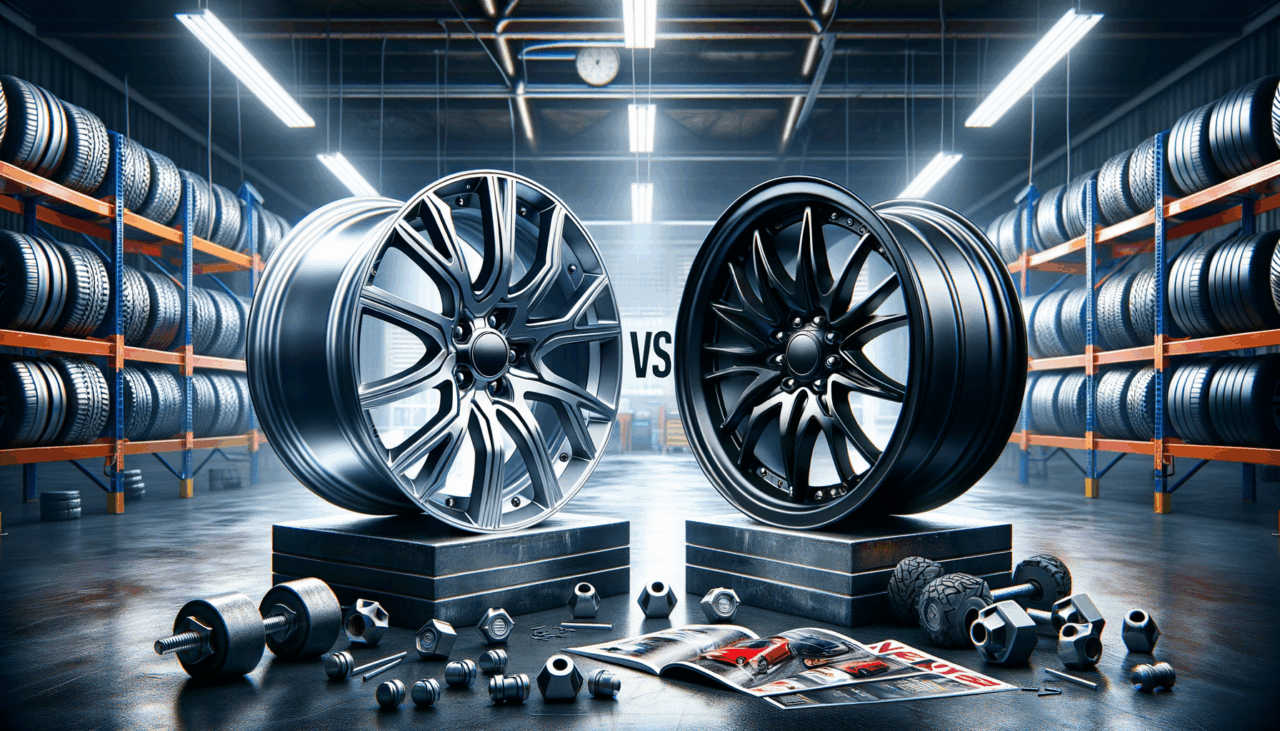When it comes to choosing the right wheels for your vehicle, the decision often boils down to alloy versus steel. Like choosing between a pot of soup and a plate of jollof rice, each has its unique flavor and appeal. But which one will serve you best in the long run? Let’s dive into the world of wheels with the same curiosity as a child unwrapping a gift and explore the key differences between alloy and steel wheels. As the wise say, “The person who has not traveled widely thinks his or her mother is the best cook.” So, let’s broaden our horizons.
Characteristics of Alloy Wheels
-
Style and Aesthetics: Alloy wheels are like the peacock of the wheel world. They are crafted from a mixture of metals, mainly aluminum or magnesium, and are known for their sleek and modern appearance. They come in various designs and finishes, allowing car owners to personalize their vehicles. If style is your priority, alloy wheels are the go-to choice.
-
Performance: Alloy wheels are lighter than their steel counterparts, which can improve vehicle handling and fuel efficiency. It’s like a musician with a light trumpet playing an intricate tune—everything just flows better.
-
Corrosion Resistance: Like a good umbrella in the rainy season, alloy wheels resist rust and corrosion, making them ideal for wet climates. This longevity can be a key selling point for many.
-
Price: Alloy wheels tend to be more expensive than steel wheels. As the saying goes, “Beautiful things are not cheap; cheap things are not beautiful.” If you are willing to invest in aesthetics and performance, alloy wheels are worth considering.
Characteristics of Steel Wheels
-
Strength and Durability: Steel wheels are like the age-old baobab tree—strong and long-lasting. Made from iron and carbon, they can withstand rough terrains and harsh conditions, making them a popular choice for heavy-duty vehicles and winter driving.
-
Cost-Effectiveness: Steel wheels are generally more affordable than alloy wheels. They are the “stew without meat” of the wheel world—simple but fulfilling.
-
Easy Repair: Should a steel wheel bend, it can usually be hammered back into shape, much like how a bent fish trap can be mended. This makes steel wheels a practical choice for those who frequently drive on challenging roads.
-
Weight: Steel wheels are heavier, which can result in reduced fuel efficiency. However, they offer better traction in adverse weather conditions due to their weight.
Comparative Table: Alloy vs. Steel Wheels
| Feature | Alloy Wheels | Steel Wheels |
|---|---|---|
| Style and Design | Stylish, modern, various designs | Simple, functional |
| Weight | Lightweight, improves handling and fuel efficiency | Heavier, may reduce fuel efficiency |
| Durability | Good, but more susceptible to damage | Very durable, ideal for rough conditions |
| Corrosion Resistance | High, resistant to rust | Moderate, prone to rust without maintenance |
| Price | Higher cost, premium option | More affordable, budget-friendly |
| Repair and Maintenance | Costly to repair, usually needs replacement | Easy to repair, can be hammered back into shape |
Conclusion
In the grand tale of alloy versus steel wheels, it boils down to personal preference and practical needs. If you’re after style and performance, alloy wheels beckon with their modern allure. However, if strength and durability are your watchwords, steel wheels stand firm like the aged iroko tree. As the Yoruba proverb goes, “If you want to go fast, go alone. If you want to go far, go together.” Choose the wheels that will journey with you the furthest, be it with the swift elegance of alloy or the steadfast strength of steel.
For more insightful comparisons and reviews, visit CompareAnything.org, where we unravel the mysteries of choice with wit and wisdom.

Comments (0)
There are no comments here yet, you can be the first!